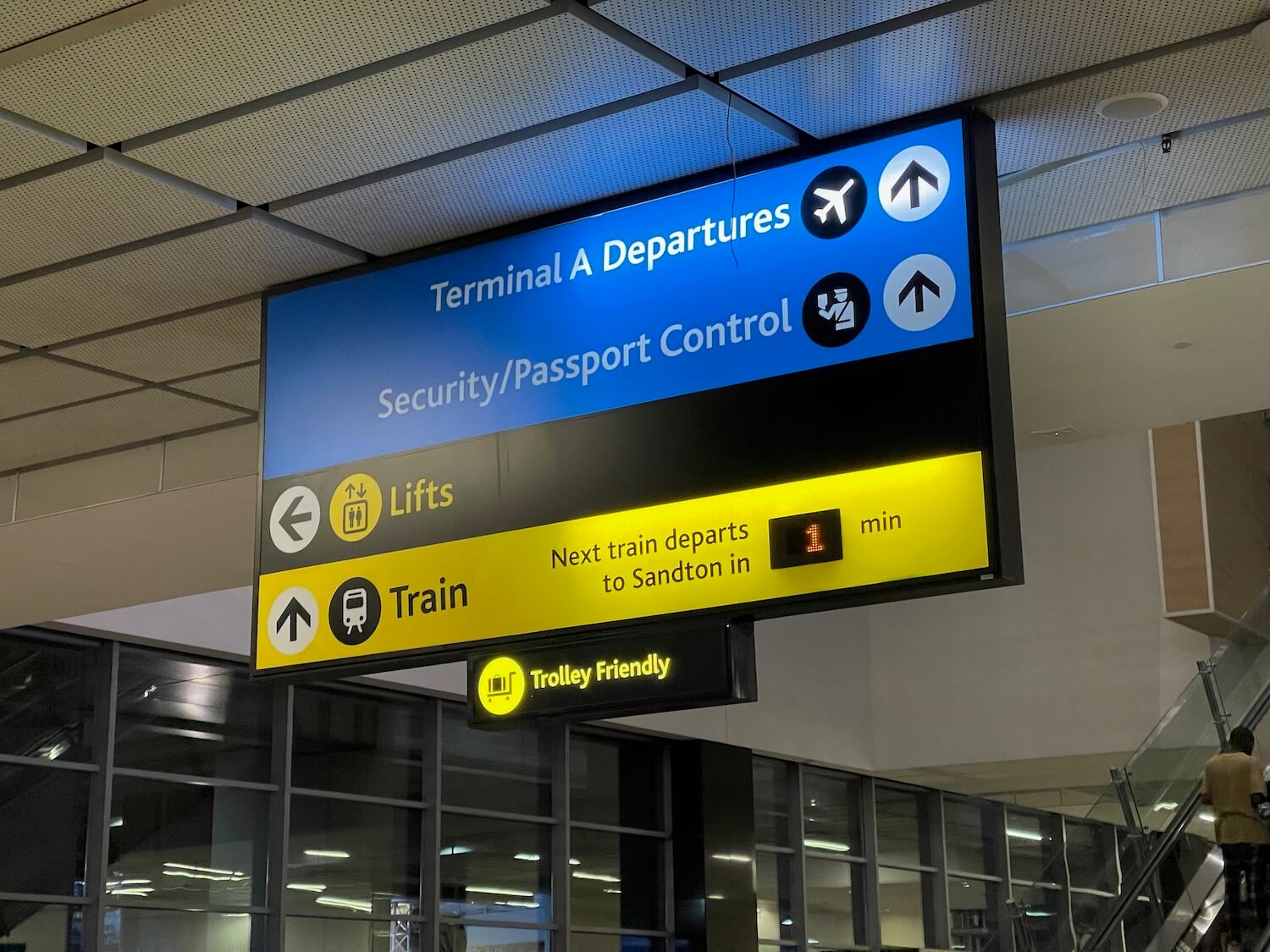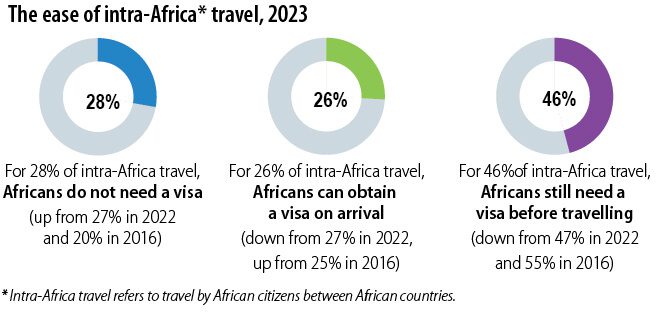Analysis in brief: A national passport that is honoured by another country allows its bearer to enter without the need for a visa. Such an agreement is a convenient document to have, saving time and expense for its owner. It is also a measure of a country’s economic promise and stability, which are factors of interest to investors.
Africa’s ‘weakest’ passport in terms of other countries willing to allow its owner to enter other nations without the need of a visa is Somalia. Only 13 nations allow Somalis to enter visa-free compared to 152 of the world’s countries that require that Somalis obtain visas before traveling. The lack of a functioning government, civil war and continued instability motivate other countries’ wariness of visa-free entry for Somalis. On the other end of the spectrum are Africa’s ‘strongest’ passports such as Seychelles and South Africa, made so because a majority of the world’s countries welcome their holders with open arms – or at least without the need for visas – as tourists, scholars and business partners.
Relevant to businesses and foreign investors, strong African passports are a barometer of intra-Africa economic integration progress. The African Development Bank’s Regional Integration Coordination Office notes that visa-free travel “makes it easier for Africans to visit their families, pursue education and business interests abroad, and discover Africa as tourists. It also contributes towards the fulfilment of aspirations for a prosperous, integrated continent where people can develop their potential, unhampered by overly restrictive visa regimes.”
Visa-free travel strengthens intra-Africa trade and boosts passport strength
Intra-African movement of the continent’s citizens has been steadily made easier in the past few years by the lessening of visa restrictions. 24 African countries now offer an e-visa, almost three times as many as in 2016. The Africa Visa Openness Index, published in December 2023, measures the extent to which African countries are open to visitors from other African nations. Visa openness achieved its highest score ever in 2023, surpassing levels last seen before the Covid-19 pandemic. Since the first report was published in 2016, 36 countries have improved their score on the Index. 42 countries extend visa-free entry to citizens from at least five other African countries, while 33 countries did so for citizens from at least 10 other countries. Four countries – up from three in the last survey – have eliminated all visa requirements for African travellers: Benin, The Gambia, Rwanda and Seychelles. In 2023, 28% of all intra-Africa travel taken by African citizens did not require a visa, up slightly from 27% in 2022 but notably higher than the 20% of 2016.
The state of African nations’ ‘visa openness’
Data source: African Development Bank
Factors boosting the strength of Africa’s top-five passports
At the start of each new year, two ranking agencies in particular are considered the authorities on the strength of national passports: The Passport Index, and the venerable Henley Passport Index. While both of these indexes rank performance on the basis of how many countries waive visa requirements for their bearers versus how many countries require visas, beyond this simple mathematical calculation, no explanation is given as to the factors that have made a particular country’s passport strong or weak. A more in-depth view on the top African passports is provided below.
Number One: Seychelles
Seychelles’ citizens traveling on the passport of the small Indian Ocean archipelago are welcomed by more foreign nations than any other African country. The Seychelles passport is the world’s 23rd most powerful on The Passport Index and the 26th on The Henley Passport Index. Being accepted without need for visa by 103 countries, Seychelles’ passport allows the holder to obtain a visa upon arrival in 41 countries and requires pre-arranged visas in only 52 countries. The lack of threat from Seychelles’ citizens is also a factor in its passport’s strength.
Seychelles has actively sought to strengthen its passports, allowing its citizens to travel the globe more freely. Seychelles was one of the first African countries to abolish visas for visitors from all other African countries. This courtesy was soon reciprocated. Moreover, Seychelles has tied the power of its passport to international trade. In early January 2024, the nation signed an agreement with the Israeli government that allows citizens from both countries to travel freely without the need for a visa. This was done despite the polarising politics of the Israel-Palestinian conflict that has caused a diplomatic uproar throughout Africa. Seychelles is playing for the long-term, counting on its openness to visitors to boost foreign direct investment.
Number Two: Mauritius
Seychelles’ Indian Ocean neighbour, the island nation of Mauritius, has Africa’s second most powerful passport. The Henley Passport Index ranks Mauritius in 30th place globally, and The Passport Index gives Mauritius’ passport a higher world ranking: 28th. It is accepted without the need for visa by 101 countries, allowing the bearer to obtain a visa upon arrival in 38 countries and requiring pre-arranged visas in only 59 countries. The country’s success at giving its citizens travel unfettered by too many visa requirements is founded on reciprocity. Seeking foreign direct investment, Mauritius has dropped visa requirements for citizens of many international partners, and the favour has been returned.
Number Three: South Africa
Possessing the most powerful passport on mainland Africa, South Africa is ranked 53rd globally on The Henley Passport Index. The Passport Index ranks South Africa higher, at 46th in the world. Its passport is accepted without the need for visas by 67 countries, while the holder is allowed to obtain a visa upon arrival in 45 countries and requires pre-arranged visas in 86 countries. South Africa’s economic, diplomatic and military might have made its citizens world travellers and investors in their own right. Many countries wish to entice visits by South Africans by dropping visa requirements including the entirety of the Caribbean, a significant portion of South America, and a number of places in the Middle East, including Qatar.
 O. R. Tambo International Airport
O. R. Tambo International Airport
Image courtesy: Live and Let’s Fly
Number Four and Five: Botswana and Lesotho
While Mauritius, which is Africa’s first country to achieve ‘high income’ status, and South Africa, an economically dominant nation in Africa, would understandably become beneficiaries of visa-free travel for their citizens, the passports of the Southern African countries of Botswana and Lesotho have oversized value in relation to their population size and economic clout. However, they possess a political and economic stability that most other African nations do not enjoy. Consequently, foreign nations are less concerned with visitor abuse by travellers from Botswana and Lesotho, who are less likely to be economic refugees or terrorists. Economic and political stability are also highly attractive to foreign direct investment.
Botswana and Lesotho passports are ranked 59th and 65th globally on The Henley Passport Index. The Passport Index ranks Botswana’s and Lesotho’s passports as the world’s 58th and 62nd most powerful. Their passports are accepted without need for visas by 56 and 49 countries respectively, allowing the holder to obtain a visa upon arrival in 33 and 34 countries respectively and requiring pre-arranged visas in 109 and 115 countries respectively.
The critical points:
A strong national passport that allows the bearer visa-free entry to other countries is an indicator of the country’s economic value and the desirability of its citizens’ visits, as seen by welcoming countries
Political and social stability make a country’s people more likely to be welcomed abroad with visa waivers because they pose a lower risk of becoming refugees
Efforts to boost intra-Africa trade have resulted in fewer visa requirements for intra-Africa travel
Source link : https://www.inonafrica.com/2024/03/05/a-strong-passport-is-a-barometer-of-economic-strength/
Author :
Publish date : 2024-03-05 08:00:00
Copyright for syndicated content belongs to the linked Source.





